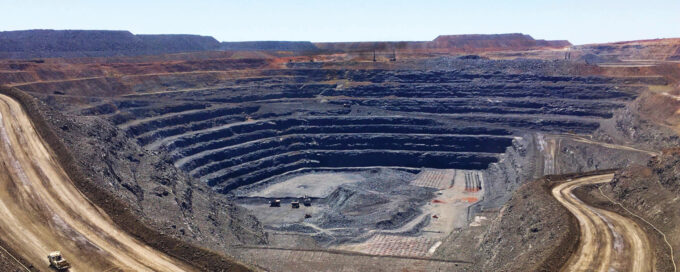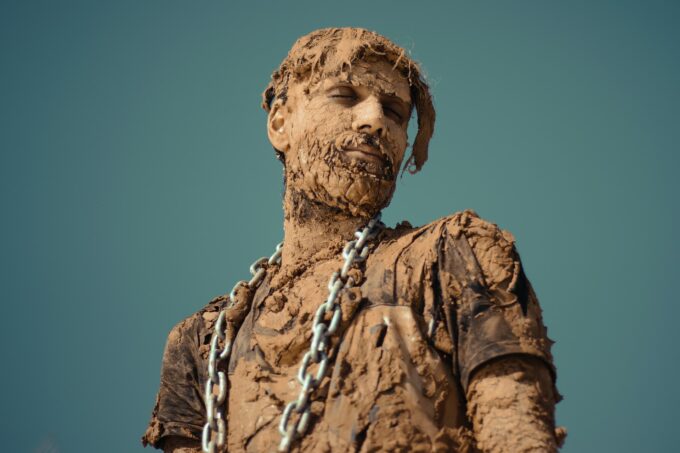Global Marketing Manager Tamil caught up with Aliter CTO and co-founder Heath, on all things waste reduction and optimisation. Heath has been with Aliter since 2008, alongside business development manager Jean-Noel. He describes himself as a Jack of all Trades – or “the dude that does everything else.” And outside of work, his interests are just as varied – including judo and krav maga.
But during COVID-19, he’s switched to a not-so-inconspicuous cycle habit – riding the Aliter “banana bike” to work.

OPTIMISING AND REDUCING WASTE
Were you originally drawn to a career in IT or sustainability?
Despite seemingly having all the hallmarks of someone on a sustainability mission, Heath says his pathway into a career in circular IT was somewhat accidental.
Quite the nature buff, he’s into insect photography and the outdoors generally. “I’m conscious of saving water and energy at home. And I prefer to repair my shoes instead of buying new ones if I can. So I guess I’m sustainable but without the ‘tree hugger’ label.”
“I used to work for another company in the same industry as we are now many years ago, in their warehouse. I was their first non-sales employee. I went to Santa Barbara for training and that led me to help them set up their network and testing. I was able to improve a lot of their processes and learned a lot. But I never really had the intention of working in IT or sustainability. It’s not the part that sparks excitement for me. What I like is simply to optimise, and I don’t like waste.”
Not a bad outlook to have in life or business. Paired with a “feeling for technical stuff”, his fit in the industry starts to make more sense.
What does your role look like day to day?
“So originally when we started Aliter in 2008, my focus was going to be on processes and testing, but we had a few people drop out, so I ended up taking on salaries, finance and HR too. The team has grown a lot since then, and some of those responsibilities have shifted so that I luckily get to focus on the bit that gives me energy. Making the most out of processes and systems. What I really love is to make things easier and more fun to do. The moment I hear someone say ‘this is annoying to do in 3 or 5 steps’, I try to find a way to skip it all together, or to move forward without needing to stop and click at every point.”
It’s clear that Heath’s day to day is key to why Aliter runs so smoothly – he’s on the pulse of what’s going on around the company, tweaking and developing. This is also likely why employees are pretty content with their gig at Aliter. Their needs are heard, and things are constantly improving.
IMPROVING VITAL COMPANY PROCESSES
Looking closer, what are some for the key processes you’ve helped innovate and improve for Aliter?
“The shipping process is a big one. From A-Z when boxes come in, we know where they are in the system. Right back to the first product we shipped. That’s very important given we ship around the world. I was able to break down our approach into easier and more traceable steps. Which has also improved on quality of equipment and delivery over the years.”Heath’s also been instrumental in Aliter’s equipment testing process. Vital to their quality of their service and product.
“I’ve made a number of testing suites that test all our products in one. Because for Aliter, we have a large group of products ranging in size and technical requirements, so we need programming that tests everything otherwise we lose time.”
“We’d need separate software for the parts we can’t test. Improving testing has meant Aliter can test equipment faster and more comprehensively. It’s also possible to look back at who tested what and when, which allows the team to learn and improve more.”
ENSURING THE RIGHT FIT
With these processes, how big of a consideration is sustainability when refining and improving them?
“Not always the biggest – because you need to weigh things out. So for instance with our eco-friendly packaging. If you take cardboard. There are a thousand different types but a common one now is the recycled stuff. But when it’s a little humid, this type is soft and you can almost poke a hole right through it. So because we ship heavy equipment, the smarter choice is to go with the non-recycled packaging for longer distance orders. Otherwise we’d have damaged shipments and returns. Which would mean using more volume, wasting money and fuel for transport.”
“It’s important to do it right the first time, and make sure you’ve tested the process to know that it works. Ultimately, anything you can do without or with minimal waste is better for the environment. So in that way, Aliter is making sustainable business and process decisions where we can.”
Making sustainable business choices also means ensuring it fits for the company.
“We all benefit from high quality processes. But it’s also important that systems make sense. A solution can be good, but if it doesn’t fit the organisation, or is cookie-cut from another company, it won’t be quite right. So if it fits and you can industrialise it – as in, copy paste it more often or teach others how to do it or understand – that’s a good sign when it comes to streamlining processes. For business and sustainability.”
Where can you improve?
“The more you look at it, every company has a variety of processes in place – some more smooth than others. But when it comes to improving sustainability, enhancing internal processes isn’t typically the first place a company will look.”
How can businesses be more mindful of whether there are internal improvements to be made?
“It depends. Sometimes the motivation to optimise or innovate a process for good takes learning the slow or hard way. Learning by doing.” As Heath puts it:
“I’d say if you don’t care about wasting time or energy, it doesn’t sting. Anything that stings prompts this urge to fix or adds pressure. So if you don’t have the sting, you’re not likely to want to change or improve.”
“So what comes first is awareness and education. Reading, asking questions, being part of topical conversations.”
Caring about your company’s impact, and a willingness to change, are driven by awareness. Something Aliter strives to boost around the topic of circular IT.
“Aliter’s CEO Odette is spearheading this need to do more and be more aware, both for our clients, and internally as a company. This idea that we have a mandate to reduce waste in any way that we can. So much so that earlier in 2020 Aliter became a B Corp Certified company.”





